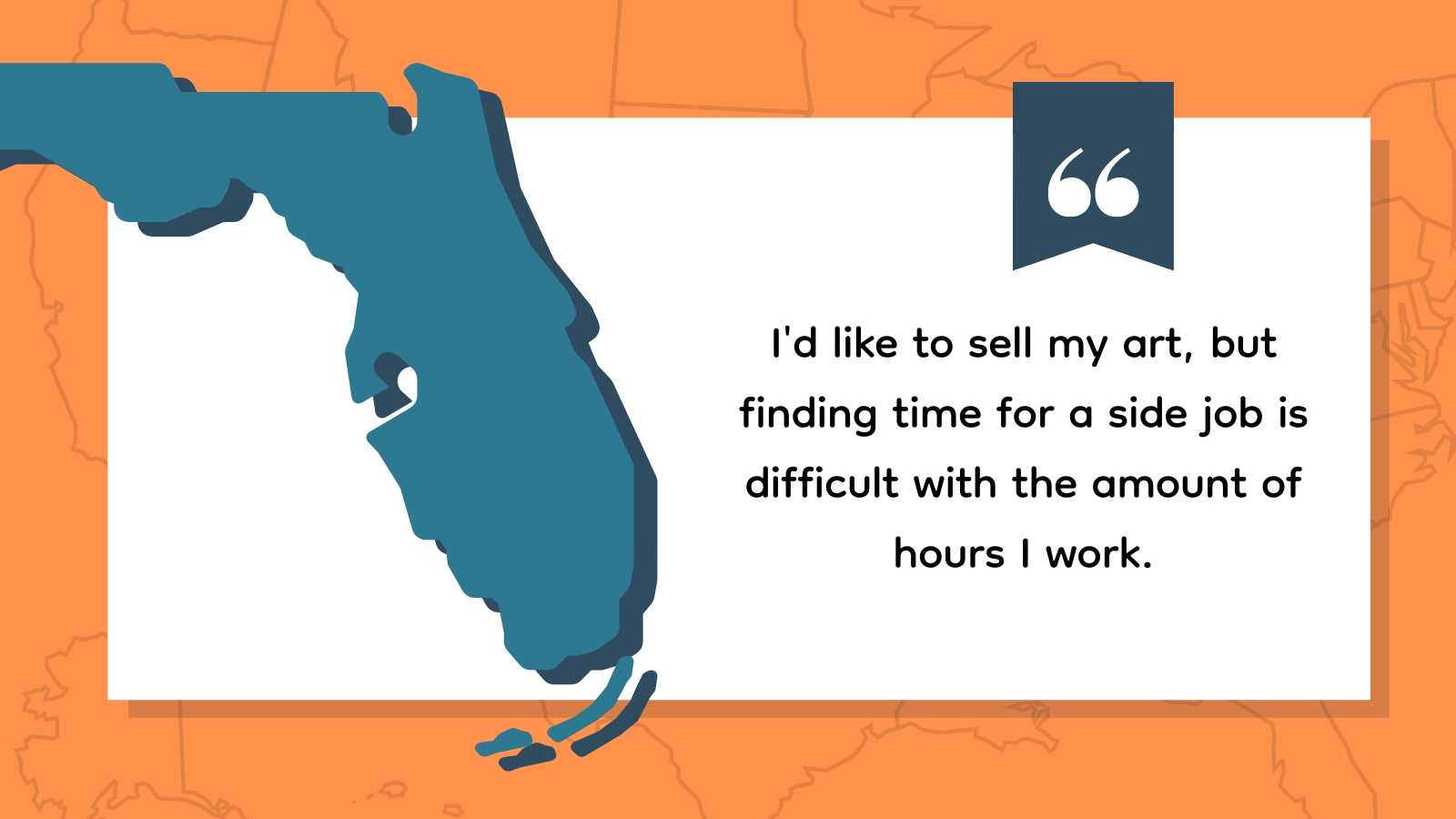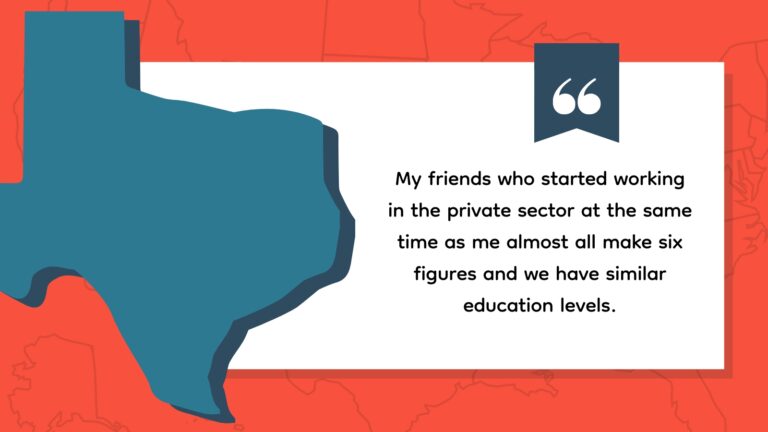In our new series Teacher Salary Stories, We Are Teachers readers share how they’re making it work—or not—on a teacher’s salary. The goal is to take an honest look at teacher pay in the United States—what’s working, what’s not, and what needs to change if we want to stem the flow of educators leaving the profession and recruit new teachers to the field.
In today’s Teacher Salary Story, a mid-career art teacher in northeast Florida talks about not receiving raises and having to fundraise for the supplies she needs for her job.
Where do you live?
Northeast Florida.
What is your job title?
Elementary art teacher.
What is your annual salary?
$40,200.
What is your level of education?
College degree.
How did you pay for your education?
Scholarships and loans.
How long have you been teaching? Is this your first career?
Seven years, and this is not my first career.
What was your starting salary as a teacher?
$38,000.
Tell us about your income progression (e.g., have you received standard step increases, taken on extra duties, gotten an advanced degree, or switched roles?).
I have not received any kind of standard increase. Each year the union has to negotiate an increase for the teachers and the State of Florida makes it very difficult to give raises based on experience.
How much is one paycheck, after taxes, and how often are you paid?
$1,200 bimonthly.
What is your approximate net worth including savings, investments, retirement, and other assets?
$5,000 not including my house. The pay rate has not kept up with the cost of living, so there really isn’t money to invest.
How many people live in your household? Are you the only earner?
Four people. My husband works in the hospitality industry.
What are your approximate monthly expenses (e.g., rent/mortgage, car payment or other loans, childcare, food, entertainment, phone/Internet/utilities, other subscriptions)?
$1,300 mortgage; $600 home Improvement loan; $300 car payment; $600 car insurance (2 cars—insurance in Florida is outrageously overpriced); $400 medical bills (as the medical insurance through the school is awful). Anything left goes to food and gas. Try to save some for emergencies.
Do you receive a school- or PTA-provided budget for classroom supplies? If so, how much?
The school gives me $300 for my budget. I teach all the students with a student population of over 500. I have to fundraise for the majority of the money used in my classroom.
How much of your own money do you spend on your classroom every year?
$200 to $300 a year. Every year, I try not to spend anything, but that is next to impossible.
What kinds of things do you buy when you treat yourself?
I like to eat out and buy art supplies.
What expense would you take on if you suddenly got an extra $1,000 per paycheck?
I’d pay off my medical debt first, then my loans.
How does your district handle retirement? Will you receive a pension?
I will not get a set pension. I get whatever I put into the state’s retirement fund, which is similar to a 401(k).
Do you have any secondary sources of income, like a side hustle or another job?
I do not. I’d like to sell my art, but finding time for a side job is difficult with the amount of hours I work.
How satisfied are you with your teaching salary on a scale of 1 to 10, 10 being very satisfied and 1 being not at all satisfied? Please explain.
1. This is my second career and I made more right out of college in 1993 than I do now as a teacher. It’s crazy how low teachers are paid and the amount of education and professional development we have to continue to complete each year.
Has your current and/or future salary impacted your decision-making around other major life choices (e.g., where you live, whether you rent/own, whether or not to have kids, etc.)? Please explain.
It has impacted my ability to save for retirement, and I don’t have extra money to help my children go to college.
Do you plan to stay in education?
I plan on staying in education for at least the next four years. When my youngest son finishes high school, I might go back into corporate work. I started teaching to have the same schedule as my children after being a graphic artist for over 20 years.
Do you have any other thoughts about teacher pay that you’d like to share?
Teachers salaries should match the education requirements. If we are required to have a bachelor’s degree and to continue learning each year, the yearly salary should match. The sad part is the cost of living increases have not matched up to the actual cost of living. When home prices, car prices, and food prices rise, so should the amount of pay teachers receive.
Are you interested in participating in our Teacher Salary Stories project? Fill out the Google Form here. If we choose your story for publication, we will notify you and send you a $150 gift card. All responses will be published anonymously.


